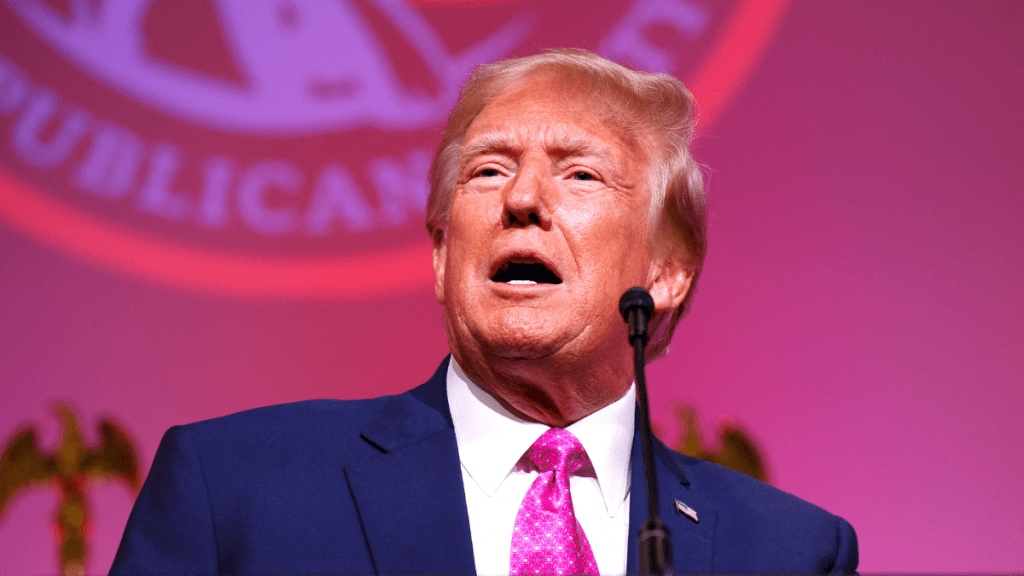US President Donald Trump has issued a warning that countries supporting BRICS policies that are in conflict with American interests will face an extra 10% tariff. He announced on social media that any nation backing what he described as “anti-American policies of the BRICS” group would be subject to this additional charge, with no exceptions.
“Anybody that’s in BRICS is getting a 10% charge pretty soon … If they’re a member of BRICS, they’re going to have to pay a 10% tariff … and they won’t be a member long,” Trump said at a cabinet meeting on Tuesday.
De-dollarisation pushing Trump against BRICS
The BRICS group, which originally included Brazil, Russia, India, China, and South Africa, expanded last year to add countries like Iran and Indonesia. The BRICS group has been seriously thinking about creating a common currency. Though the idea is still in its early stages, interest has grown as these countries look for ways to rely less on the US dollar and gain more control over their own economies. The main reasons behind this move include making trade and payments within BRICS smoother, avoiding the impact of US sanctions, and boosting cooperation between member countries.
Talks about a BRICS currency have been going on for years, but things have picked up speed recently. If the BRICS countries do launch a new reserve currency, it could reduce global dependence on the US dollar, a process known as “de-dollarisation.” This might lower the dollar’s demand worldwide, affecting both the US economy and the global financial system.
Another factor is the return of Donald Trump as US President, with his second term that started from January 20. His “America First” policies are expected to strengthen the dollar, as seen after his election win on November 5, when currencies like the Chinese yuan, Russian ruble, Brazilian real, Indian rupee, and South African rand had all dropped in value.
At the 2024 BRICS summit, Russian President Vladimir Putin was seen holding what looked like a sample BRICS currency note. However, he softened his earlier stance on de-dollarisation. He clarified that BRICS does not aim to completely stop using the dollar or exit systems like SWIFT. Instead, the goal is to reduce the risks of US financial pressure by creating better systems for using their own currencies in trade and financial deals.
When asked about Trump’s warning of extra tariffs, Brazil’s President Luiz Inacio Lula da Silva recently said the world doesn’t need a ruler telling others what to do. After meeting with Prime Minister Narendra Modi, Lula again disagreed with the Trump’s stance. Speaking to reporters in Brasilia, he said that Brazil would not accept any criticism about the BRICS summit and firmly opposed the US Prez’s suggestion of placing tariffs on BRICS nations.

